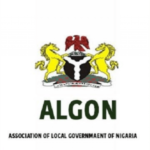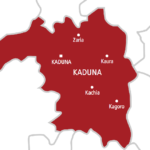
It was a tough, long and frustrating struggle. Nigerian journalists through their various professional bodies, the Guild of Editors, the Newspapers Proprietors Association of Nigeria and the Nigerian Union of Journalists, under the umbrella body, the Nigerian Press Organisation, NPO, worked hard to persuade parliament to enact a law that would allow Nigerian citizens the freedom to access information from their government. The technical name for this sort of law is freedom of information of act.
No easy task. Both the executive and the legislature were clearly not impressed by the eloquent argument put up in support of the bill by the journalists and their informed friends at the bar. They foot dragged. They tried to water down the legislation to make it thoroughly useless. They tried every trick in the book to avoid the unpleasant task of making a law that might return to hunt them in the performance of their public duty. In other words, and not strangely, they personalised the primary objectives of the law and each saw himself possibly impaled on its spike at a future date.
I am sure they hinged their reluctance on what our big men think of our journalists, to wit, they are irresponsible and would irresponsibly use the law. There was always the unspoken fear that the press would use the law to torment everyone. You cannot rule out the press going after legislators from whose cupboards you could loudly hear the rattling of skeletons drawing attention to themselves.
And so, for twelve years, the well-fed legislators sat on the Freedom of Information Bill, thus deepening the frustration of the journalists. Our journalists are brave men and women. They refused to give up on the enactment of the bill. Their persistence and commitment paid off. At last, the ice thawed.
The House of Representatives passed the bill into law on February 24, 2011; the senate did so on March 16. The harmonised version was passed into law on May 26 and sent sent to President Goodluck Jonathan on May 27 for his assent. The president assented to the bill on May 28.
We expected May 28, 2011, to mark a watershed in our quest for openness in government. The truth is less palatable. Our Freedom of Information Act, like an unused sword, now sleeps in the scabbard.
I am unable to reconcile this apparent neglect to use the law on the part of our news media with the sweat that marked the struggle to birth the law. Since the bill became an act of parliament, there has been no major demand, if indeed any, major or minor, by the news media on the government and their agencies to give them access to the loads of information kept out of the reach of the Nigerian public. The worst thing you can to do a law is to let it gather dust, half remembered and half forgotten.
Did we sweat over the law for nothing then? Perhaps, we have forgotten the primary objective of this very important piece of legislation. It is not to pursue those who cannot muffle the sound of the rattling skeletons in their cupboard. Its objective is more important and more noble than that. The act derives from the principle that the people have inalienable right to access information hidden or hoarded by their government. To put it another way, the freedom of information act expands the frontiers of free speech and strengthens the pillars of an open government. A piece of legislation, no matter how beautifully worded, is of not much use unless it is tested. Are the Nigerian media afraid of testing this law? That would be a thousand pities.
The freedom of information act, under whatever name it is known in various countries, e.g. the Americans call it sunshine law; the Chinese call it open government information and Denmark calls it access to public administration file, is believed to be the modern engine that drives the cause of open government, transparency, accountability and the rule of law. As a matter of historical record, Sweden was the first country in the world to enact the law in 1766. It calls it Freedom of the Press Act.
It has been a long and slow walk to where we are now with the law. More than 95 countries have seen the light and the need to enact the freedom of information act to ensure that their citizens are not denied what they should know about their governments. It is intended to sound the death knell on those dark days when secrecy in government was more or less an article of faith. The current mantra is open government. Openness in government is the light that drives out the darkness of secrecy.
The freedom of information act rests on two universal principles, namely that a) governments are legally and morally bound to develop and sustain informed citizenry through given them access to information hidden from the public and b) the right of the people to freely access public information must not be strained by legislative hurdles design to include out the public.
Only five African countries have enacted the law. Liberia, with all its political and crippling social problems, beat our our country to it. It became the first country in West Africa to enact the freedom of information bill into law in October 2010. The Liberian act allows public access to both public and private information.
The United Kingdom enacted its Freedom of Information Act in 2000 AD. In case our media men and women have forgotten what this is all about, let me refresh their memory by quoting the UK white paper called Your Right to Know, a prelude, if you like, to the enactment of the law:
“Openness is fundamental to the political health of a modern state. This white paper marks a watershed in the relationship between the government and the people of the United Kingdom. At last there is a government ready to trust the people with a legal right to information.”
The paper argued that “unnecessary secrecy in government leads to arrogance in government and defective decision-making.”
It is important for us to underline the two critical phrases here: arrogance in government and defective decision-making. There is a lot arrogance in all governments. It stems from the belief that those in government are infinitely wiser than the rest of the citizens. This belief is, of course, hollow in that it does not rest on empirical evidence. The fool who finds himself in government today would be foolish to think he has become King Solomon just be the virtue of his high office. Arrogance is the mother of defective decision-making in government because it masks denies others the right to make wise and informed inputs to the decision-making process. The openness in government promoted by the freedom of information act is meant to whittle banish arrogance in government and make decision-making less defective. It important to point out here the the freedom to access government information through the instrumentality of the freedom of information is not absolute. It is hedged in by the laws that narrow the access but without the law, the situation could be worse.
It is a welcome development that Lagos and Ekiti states now have the freedom of information act in their statue books. I hope other states will see the light and follow suit. But even if all the states enact the law and our news media are afraid of testing the law, the news media would deny themselves the opportunity of promoting open government and good governance. Good governance does not happen. It is made to happen – and often by the news media holding the government to certain basic standards.
The freedom of information act represents a golden opportunity for our news media to show that they believe in the concept and the principles of open government, good governance, transparency and the rule of law. Their lack has hobbled our national progress and development. Time to cry for change, commit to change and begin the long walk to the nation of our collective hopes and dreams.
 Join Daily Trust WhatsApp Community For Quick Access To News and Happenings Around You.
Join Daily Trust WhatsApp Community For Quick Access To News and Happenings Around You.



